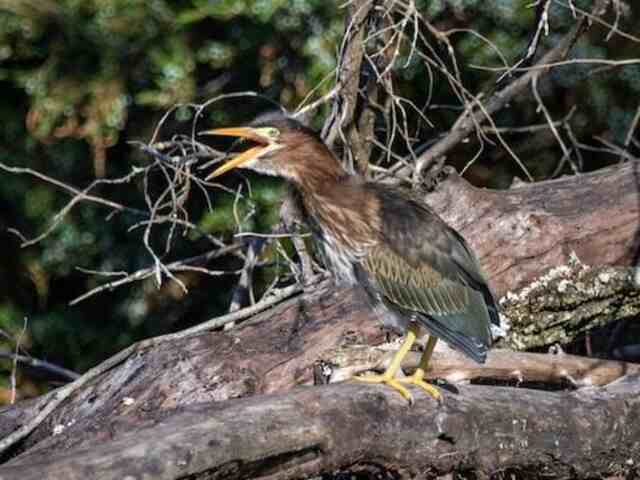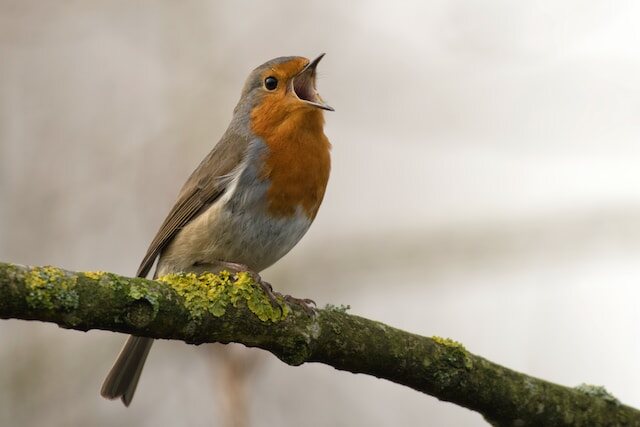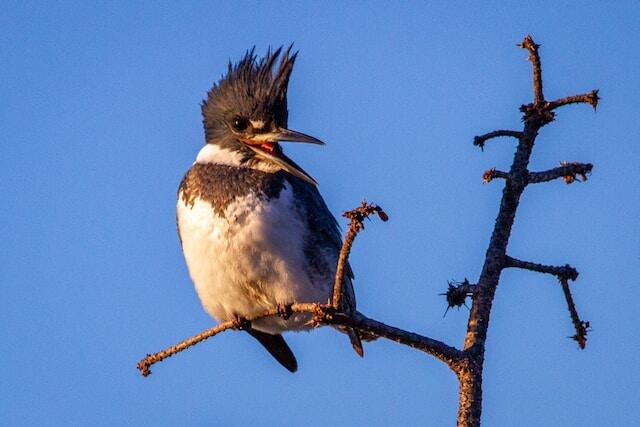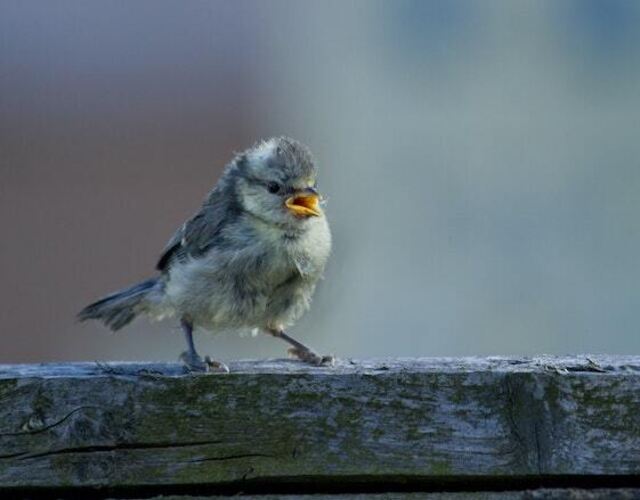Do birds burp? It’s a question that might have crossed your mind while observing these feathered creatures. The short answer is both surprising and delightful.
In this article, we uncover the intriguing world of bird digestion, exploring the truth behind their burping habits and unraveling the fascinating facts that make birds even more captivating.
Get ready for some unexpected insights!
Table of Contents
- 1 Importance of Understanding Bird Behavior
- 2 Brief Overview of the Article
- 3 What is Burping?
- 4 Bird Digestion System
- 5 Do Birds Burp?
- 6 Interesting Facts about Bird Digestion and Gas Release
- 7 Conclusion
- 8 FAQs: Do Birds Burp?
- 8.1 Do birds burp like humans?
- 8.2 Can birds experience indigestion?
- 8.3 Why don’t birds burp after eating?
- 8.4 Do birds release gas in any way?
- 8.5 Can birds experience stomach discomfort?
- 8.6 What happens if a bird ingests too much air?
- 8.7 Are burps necessary for digestion?
- 8.8 Do baby birds burp?
- 8.9 Can birds experience acid reflux?
- 8.10 Are there any health concerns related to birds not burping?
- 9 Author
Importance of Understanding Bird Behavior
Understanding bird behavior is important for a number of reasons. For one, birds are an integral part of many ecosystems and play important roles in maintaining balance within those ecosystems.
A deeper understanding of how birds behave can help us better protect and conserve these animals.
Additionally, understanding bird behavior can give us insight into larger ecological processes, such as migration patterns or food chains.
Studying bird behavior can also help us better understand our own history and evolution as humans; after all, our ancestors may have learned much from observing the behaviors of other animals.
Brief Overview of the Article
In this article, we will first define what burping is and why humans do it. We’ll then take a closer look at the digestive systems of birds and compare them to those of humans to determine if burping plays a role in bird digestion.
From there, we’ll explore how birds release gas from their bodies if they don’t actually burp.
We’ll delve into some interesting facts about bird digestion and gas release that you may not have known before reading this article.
By the end of this article, you’ll have gained a greater appreciation for these feathered creatures and their unique physiology.
What is Burping?
Burping, scientifically known as belching or eructation, is the process of expelling gas from the stomach by passing it through the mouth.
This gas can be produced when swallowing air while eating, drinking carbonated beverages, or as a result of fermentation by bacteria in the digestive tract.
A burp typically consists of a mixture of oxygen, nitrogen, and carbon dioxide. In some cases, it may also contain small amounts of methane and hydrogen sulfide.
Why Do Humans Burp?
Burping is a natural mechanism that helps to relieve pressure in the stomach caused by excess gas. When food is broken down in the stomach and small intestine, gases such as carbon dioxide and nitrogen are produced.
These gases can build up and cause discomfort if they are not released through burping or flatulence (passing gas).
In addition to relieving discomfort, burping also serves as a social cue in many cultures. In some societies, burping after a meal is considered a sign of gratitude or satisfaction with the food.
Comparison with Bird Digestion
While humans rely on burping to release excess gas from their digestive system, birds have evolved a different mechanism for dealing with this issue.
Unlike mammals, who have teeth to break down food before swallowing it whole or chewing multiple times before ingesting it completely; birds do not chew their food thoroughly before swallowing it whole.
Birds have a unique digestion system which requires them to effectively process hard seeds without teeth through specialized organs such as their crop and gizzard where food becomes ground up into finer particles allowing for easier digestion.
Due to this unique system where birds swallow food whole without chewing entirely they do not need to release gas from their stomachs as much as humans do; instead releasing any gas via other exits such as flatulence from their cloaca (the opening that releases both feces and urine), or by diffusion of gas from their digestive system into the bloodstream.
While burping is a natural process in human digestion, birds have evolved a unique way to deal with excess gas in their digestive system.
Understanding the differences between human and bird digestion can help us appreciate the diverse mechanisms that allow living organisms to survive in different environments and conditions.
Bird Digestion System
Overview of the Bird Digestive System
Birds’ digestive systems are highly adapted to their unique lifestyle, which often involves eating hard-to-digest materials like seeds and insects.
The bird digestive system consists of several different organs, including the crop, proventriculus, gizzard, small intestine, and cloaca.
The crop is a muscular pouch located at the base of the bird’s neck that stores food temporarily before it enters the stomach.
The proventriculus is a glandular part of the stomach that secretes enzymes that aid in digestion. The gizzard is an incredibly powerful muscular organ located between the proventriculus and small intestine.
It helps grind up food that birds swallow without chewing (since they lack teeth).
Once food has been broken down in the gizzard and small intestine, it passes through the cloaca – an internal chamber where waste products are stored prior to excretion.
Differences between Human and Bird Digestive Systems
While both humans and birds have digestive systems that break down food for energy use by cells throughout their bodies, there are several key differences between these two systems.
For one thing, birds lack teeth altogether – so they must rely on other mechanisms to break down tough foods like seeds or insects.
This is why birds have evolved such a powerful gizzard muscle, as well as specialized enzymes produced by their proventriculus.
Another major difference is that because birds need to remain lightweight for flight purposes, they have shortened intestines compared to humans.
This means that food moves through their system more quickly than it does in humans – which can make digestion less efficient overall.
Birds can also store large amounts of food in their crop – meaning they can eat more than you might expect based on their size alone!
How Birds Digest Food Without Teeth
Without teeth to grind up their food, birds have developed many specialized adaptations in order to break down tough materials like seeds and insect exoskeletons.
One of the most interesting of these adaptations is the gizzard, which is a muscular organ that uses stones or grit swallowed by the bird to help grind up food.
The gizzard muscles then contract powerfully, grinding the contents against each other and breaking them down into smaller pieces.
Additionally, birds produce enzymes in their proventriculus that can break down cellulose – a tough carbohydrate found in plants – more effectively than most mammals can.
This helps them extract more nutrients from their food, making up for the fact that they can’t chew it first.
Taken together, these adaptations make birds highly efficient at extracting nutrients from a wide range of foods – which has allowed them to thrive in many different environments around the world!
Do Birds Burp?
Birds are fascinating creatures that have unique characteristics, one of which is their digestion system. Unlike humans and other mammals, birds lack a stomach chamber where food is fermented and released as gas through burping.
Instead, birds have an efficient digestive system that allows them to extract nutrients quickly and effectively from their food without producing harmful waste gases.
In this section, we will explore why birds don’t need to burp and how they release excess gas from their bodies.
Explanation of Why Birds Don’t Need to Burp
Birds have a much shorter digestive tract than mammals do, which means that food moves through their bodies much more quickly.
This rapid transit time reduces the amount of gas produced in the digestive process, which can lead to bloating or discomfort if not properly expelled.
Additionally, the absence of a fermentation chamber in birds’ digestive systems means there is no build-up of bacteria or fermentation process which can cause gas production.
Unlike humans who rely on bacteria in our gut to aid digestion, birds produce enzymes that help break down food particles before they enter the small intestine where most nutrients are absorbed into the bloodstream.
Furthermore, as air sac breathers – meaning they breathe in and out through two separate sets of air sacs – they keep their respiratory system entirely separate from the digestive system with no crossover between them.
How Birds Release Gas From Their Bodies
Just like humans, birds produce gas during digestion; however, unlike us, they don’t release it via burps or flatulence. Instead, excess gas is expelled through other parts of their body such as exhalation (breathing out), defecation (pooping), or by regurgitation (vomiting).
Additionally, some species may release gases through gaping – opening their beaks wide while expelling air rapidly. One way this happens is by the swift passage of food through their digestive tract.
Unlike humans, birds do not have a holding chamber where food particles can ferment and release gas.
Instead, the food moves quickly from their mouth to their cloaca – an opening that serves both as the exit point for waste products and as a reproductive organ – where excess gas can escape when they defecate.
Examples of How Different Species Release Gas
Different bird species have unique ways of releasing gas from their bodies. Some species, like pelicans or storks, regurgitate pellets of undigested materials which contain indigestible items such as bones or fur.
These pellets are often visible on the ground near their breeding grounds.
Other species like swifts or swallows will rapidly expel air by gaping while in flight since they rarely perch on surfaces. For some birds, like ostriches and other ratites, they release gases through exhalation.
Ratites have numerous air sacs that serve different functions in their bodies; one of them helps with vocalizations, while another serves for cooling down body temperature by expelling hot air outwards.
Although birds do not burp to release excess gases from digestion like humans do, they have evolved efficient ways to manage this process without discomfort or harm to themselves.
The absence of a fermentation chamber lengthens the transit time for gastrointestinal contents and eliminates prolonged fermentation periods, leading to less production of harmful gases.
The process sounds bizarre, but is fascinating and exemplifies nature’s diversity well!
Interesting Facts about Bird Digestion and Gas Release
Birds have unique digestive systems that allow them to extract nutrients from their food efficiently. As a result, there are some interesting facts about bird digestion and gas release that may surprise you.
Birds that Produce Methane Gas
Believe it or not, there are some species of birds that produce methane gas as part of their digestive process.
This gas is usually associated with cows and other ruminant animals, but certain birds like the hoatzin in South America have a foregut that ferments vegetation, producing large amounts of methane.
The hoatzin’s unique digestive system allows it to extract more energy from the tough leaves it eats, which is essential for survival in its habitat.
Birds That Swallow Stones to Aid Digestion
Many bird species swallow stones or grit to aid in the mechanical breakdown of food in their gizzards. This process is known as gastrolith digestion and is especially important for birds that eat hard-shelled prey like snails or crustaceans.
The stones grind up the food into smaller pieces, making it easier for the bird’s digestive juices to break down the nutrients.
Some species even have specialized pouches called crop milk glands which produce a nutrient-rich fluid containing proteins and fats for feeding their young.
How Some Birds Use Flatulence as a Form of Communication
While flatulence is often seen as an embarrassing bodily function in humans, some birds use it as a form of communication within their flocks.
For example, male sage grouse create special sounds by inflating air sacs on their chests and releasing air through specialized feathers on their necks during mating displays.
Other birds like penguins use vocalizations combined with flatulence to communicate with each other while living in close quarters during breeding season.
For these birds, flatulence is an important part of their social behavior and helps them communicate effectively with their peers.
The Importance of Understanding Animal Behavior
Understanding the unique aspects of animal behavior, including digestion and gas release, is essential for conservation efforts and managing human-wildlife interactions.
By learning more about the way animals live and function in their environments, researchers can better understand how to protect vulnerable species from threats like habitat loss or pollution.
Furthermore, understanding animal behavior can help us appreciate the diversity of life on our planet.
The more we learn about how different species survive and thrive, the more we can appreciate the incredible complexity and beauty of nature.
Conclusion
Summary of Key Points
Throughout this article, we have discussed the fascinating world of bird digestion and gas release. We have learned that birds do not burp like humans because of their unique digestive systems.
Instead, they release gas through various means such as regurgitation and flatulence.
We have also seen how different bird species have unique ways of digesting food, from using stones to grinding up food in their gizzards.
Importance of Understanding Unique Aspects of Animal Behavior
Understanding the unique aspects of animal behavior is crucial for many reasons. It can help us better appreciate the diversity and complexity of the natural world around us.
In addition, it can provide us with valuable insights into how we can better care for and protect our animal companions.
Learning about bird digestion and gas release also has practical applications in fields such as agriculture and environmental conservation.
By understanding how birds digest their food, for example, farmers may be able to develop more effective feeding strategies for domesticated birds such as chickens.
Final Thoughts on Bird Digestion and Gas Release
While we may find some aspects of bird digestion and gas release to be strange or even humorous at times, it is important to remember that these processes are essential to maintaining a healthy ecosystem.
Birds play vital roles in pollinating plants, controlling insect populations, and dispersing seeds across vast distances.
By further exploring the intricacies of bird digestion and gas release, we can gain a deeper appreciation for these remarkable creatures that share our world.
Whether you are a professional ornithologist or simply a curious nature enthusiast, the study of avian biology will continue to offer endless opportunities for learning and discovery.
FAQs: Do Birds Burp?
Do birds burp like humans?
Birds have a different digestive system than humans. While they can expel gas through their digestive tract, they do not produce audible burps like we do.
Can birds experience indigestion?
Birds have evolved efficient digestion to prevent indigestion. Their unique digestive system allows for rapid processing of food, minimizing the chances of discomfort or indigestion.
Why don’t birds burp after eating?
Birds have a specialized digestive system that includes a muscular organ called the crop. The crop helps store and soften food, reducing the need for burping.
Do birds release gas in any way?
Birds release gas through their digestive system by passing it as flatus or by regurgitating it as a defense mechanism or to communicate with other birds.
Can birds experience stomach discomfort?
Birds have adapted digestive systems that enable them to efficiently process their diet. While they may experience temporary stomach discomfort, it is usually resolved quickly without the need for burping.
What happens if a bird ingests too much air?
Excessive air intake can cause discomfort or bloating in birds. They may regurgitate or pass gas to release the excess air, relieving any discomfort.
Are burps necessary for digestion?
Burping is not a necessary part of avian digestion. Birds have unique adaptations to efficiently process food without the need for audible burps.
Do baby birds burp?
Baby birds have underdeveloped digestive systems and rely on their parents to regurgitate food for them. They do not produce audible burps but may release gas through their digestive system.
Can birds experience acid reflux?
Birds have evolved to minimize the chances of acid reflux due to their unique digestive system. However, certain factors, such as illness or dietary issues, can occasionally lead to acid reflux in birds.
Birds have evolved efficient digestive systems that do not rely on burping. As long as they are eating a proper diet and maintaining their overall health, the absence of burping is not a health concern for birds.







